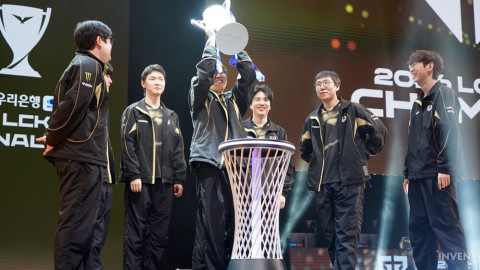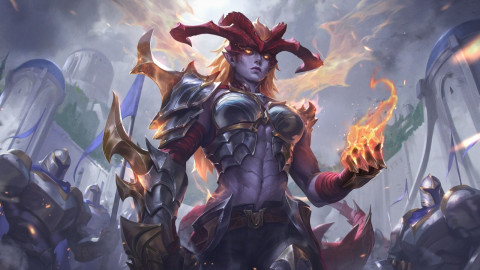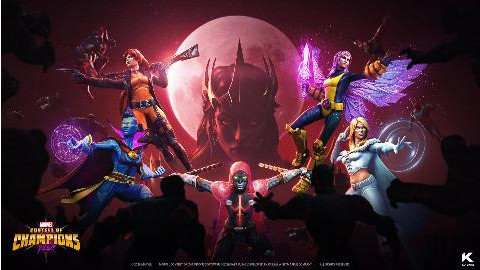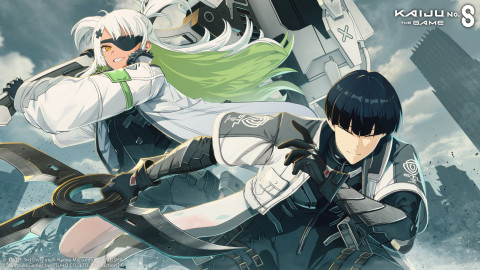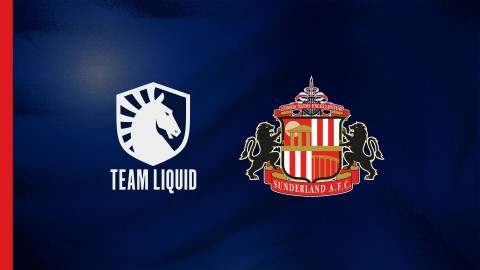
Emily Rand is one of the newer additions to the LCS analyst desk, and she has fit right in. Not only does she have great knowledge of the LCS, but also of the LCK and LPL, making her a shoo-in for the MSI desk. But, what casual viewers may not know is her long history as an esports journalist. She was brought onto the LCS broadcast hot off the back of winning Esports Journalist of the Year, and her path to the desk has been an interesting one.
Inven Global had the opportunity to sit down with Emily and ask her about her career as both a journalist and broadcast talent, and the challenges both career paths presented for her.
What are some of the biggest challenges you’ve had to overcome in the transition to being broadcast talent? Are there any specific examples of when your experience as a writer helped (or perhaps hindered) your development?
The largest difficulty I’ve had in transitioning to broadcast talent from being a journalist is that I suddenly have so much less time than I previously had to explain things. If I want to get into the complexity of a play, I have to make sure that I’m explaining it well enough. A lot of the things that I really find fascinating aren’t necessarily the sexiest things to have on broadcast. So, that has been a huge thing because we have anywhere between 4-7 minutes to have a post/pre-game segment. And that’s shared between all of us, right? So, the largest difficulty I’ve had has been in being concise, and then also learning cadence with my fellow co-workers, which they’ve been super helpful with. Everyone on the broadcast team is really great, they’ve been really helpful with feedback as to how I can improve. Especially Raz, so shoutout to him.
I wouldn’t say my experience as a journalist has necessarily hindered me, outside of the fact that I’ve usually had more time to make my points than I have on broadcast. Where it’s really helped is just that I’ve interviewed a lot of the LCS players for years, so I can draw on prior experience with them and use past interviews. I’ve found myself pulling up old google docs with my transcriptions in them very frequently to try to build narratives and storylines. So, that’s really cool, actually. I have an entire body of work I can look back on and draw from.
Feel free to correct me here, but you seemed pretty nervous when you first hit the broadcast. I can’t imagine anyone that wouldn’t be. What would you say is the biggest thing you’ve learned about yourself on your path toward becoming a better analyst?
Hm… I think I was always going to look nervous because I have a lot of nervous energy — I was really nervous when I initially joined the broadcast, but another problem I have is that I’m just a nervous person. I’m constantly twitching or shaking my leg or something, so that’s been something I’ve had to correct.
I think the thing I’ve learned the most about myself on broadcast is that I’m not nearly as bad on camera as I thought I was, and, additionally, that I was told prior in my career that I was. There was this weird point in esports history where people were like, “Oh yeah, she’s really good at writing but terrible on camera”, or I had heard from people that I should stay off camera because I was so bad. I’m glad I didn’t listen to those people.
Ending up on the LCS broadcast was the culmination of a lot of hard work, but also kind of a lucky fluke in that they were looking for people and I just lost my job. So, I’m really, really pleasantly surprised that it worked out.
Is there any specific segment or moment you’ve had on broadcast that really stands out to you as something you’re proud of?
I would say that there’s a throughline with — this is gonna be what people think the answer is gonna be. It’s a sponsored segment, but the tactical breakdowns we do with how EG will funnel the gold through into their carries, trade objectives across the map, that kind of thing. And I’m glad that I recognized that during the Lock-In tournament with the set plays that they used to facilitate Jojo and Danny, and have been able to track that throughout the split. I don’t know if that’s a shoutout to me for recognizing it, or just a shoutout to EG’s coaching staff for being so consistent, and that’s one of the reasons they won the title.

What do you miss the most about your main method of storytelling being the written word? If you had to pick one thing that you think you can convey better in text than you could on video or in spoken word, what would it be?
Definitely individual player narratives. You can bring a lot more context into a written article as opposed to video, especially, again, like I said before, given the time constraints. Given how everyone always wants the video to be short because longer videos don’t play well, everyone has all these metrics on it or whatever. It’s not that you don’t have to be choosy with how you phrase things, because I think you should still be paying attention to the writing itself. But, as someone who enjoys the craft of writing— I mean, I do it for fun, not for journalism, and just for something completely unrelated sometimes. And it’s… I miss that ability to build layers of context that are frequently lost when someone is just watching video.
It’d be fair to say a lot of people who know you now know you as an on-air talent. But, if you had to recommend one piece from your entire career as a journalist to show someone to sort of represent what your career was before you hit broadcast, what would it be?
There are probably two; they’re very different. One of them is still pinned to my twitter page. I was fortunate enough to go along with Ashley Kang who translated for me, shoutouts to her, to interview Peanut’s mom about his career, about him growing up. It was really an interesting bridge to forming a slightly better relationship with my own mother. I felt a lot of similarities in talking to her from when I had talked to my mother previously about something else, so that was really cool finding that common ground. Also, she’s just so nice. If anyone goes to visit her store because of me, I’ll be so happy. All of Peanuts family members were really, really nice and warm and welcoming.
That, and there was an article I wrote in 2016 when I was able to attend a video shoot with the ROX Tigers while I still worked at TheScore esports. I’m not sure if this article still exists out there because I don’t know if that vertical still exists? I tried to look up one of Kelsey Moser’s old articles the other day when I was writing something else, and I couldn’t find it even though I had it bookmarked. So I’m not sure if that still exists anymore, but, if it does, it was called “An Evening with the ROX Tigers”, and I felt really fortunate to be a part of that experience. I don’t think there will be another team quite like them, and, to have been able to be there when they were at their peak, was really awesome.

Do you see a future for your career beyond League of Legends? Are there any other esports, or just general aspects of life that you’d like to get into, that you have the same burning passion for that you have with League of Legends?
I thought about this a lot when I was with ESPN. Within ESPN, there may have been a chance to go elsewhere within the company and…for example, I’m really passionate about figure skating. Like professional figure skating. I have been since I’ve been really little and I took figure skating lessons. So, you know, doing something like being a beat reporter for figure skating, or transitioning into something else sports-related. Prior to esports, that’s what I did. I was a sports journalist, and that’s also what I went to school for.
So there’s that, but I spent 2020 while I was still with ESPN, covering multiple esports, doing a twitch stream almost every day. Basically just absolutely burned myself out because I was stretched in so many different directions. And coming to the LCS was like coming home. And it’s not necessarily because it was the LCS, but it was because— I mean, these players, I’d interviewed them on the other side, so coming on the broadcast was really interesting because it’s a completely different perspective.
But then, additionally, I only had to do League, right? So, I’m always the kind of person who’s going to pour themselves into their work. I don’t think that’s ever going to change about me. I value my job very, very highly, I’m highly competitive. I’m always trying to be a better version of myself, so I frequently only see flaws in my analysis and try to push myself to be better. So I’m always going to be the kind of person who pours themselves into their work.
The reason why it was really nice to go back to only watching League of Legends, even though I was still watching all of NA, in between all of LPL, EU, and LCK, between VoDs and staying up and actually watching it live, it didn’t feel nearly as tiring. And it probably still was technically less work, but the fact that it was all League of Legends was very cool.
My career after League of Legends… I feel like I’ll have a lot of opportunities, if only because I have a lot of experience in other things. But yeah, I guess I’m… I’m always in the mode of trying not to lose my job because I’ve lost my job so many times that have not been performance-based, I guess? So that is what I’m trying to do, and think ahead in terms that are more like, “If I got fired tomorrow, would I still be proud of what I’ve been doing recently?” And if the answer is yes, even if I think I can improve, that’s probably a good place to be. So that’s where I’m at right now.
-

Carver is an esports journalist and analyst who specializes in Eastern League of Legends.
Sort by:
Comments :0

